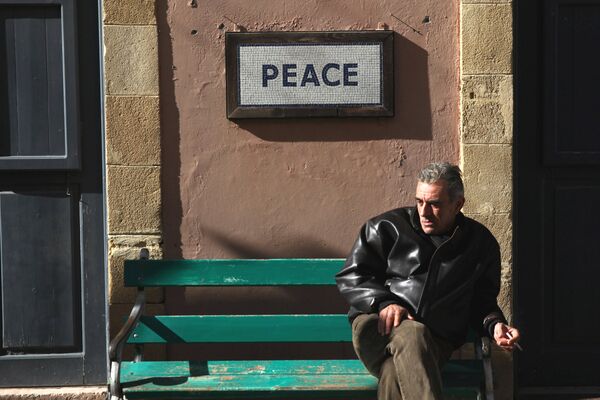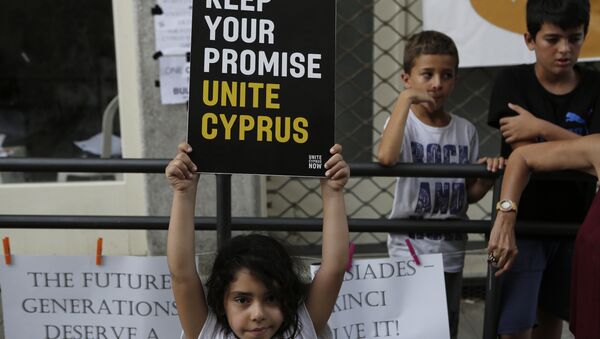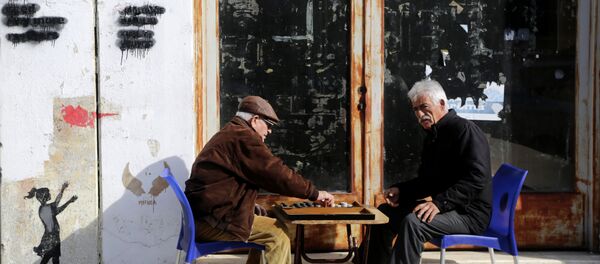The Greek Cypriot side claimed they had made concessions towards the Turkish Cypriot demands for a rotating presidency of a unified republic, but the talks appear to have broken down over Turkey's role on the island.
"I'm very sorry to tell you that despite the very strong commitment and engagement of all the delegations and different parties… the conference on Cyprus was closed without an agreement being reached," said United Nations Secretary-General Antonio Guterres, who called off the final talks at 2am as both sides raised their voices in anger.
He had flown into Geneva on Thursday (July 6) to press Greek Cypriot President Nicos Anastasiades and Turkish Cypriot leader Mustafa Akinci to push through a deal. The US Vice President Mike Pence had telephoned both sides to urge them to "seize this historic opportunity."
Government Spokesman @Christodulides remarks to reporters on the outcome of the #ConferenceonCyprus. #CyprusProblem #Cyprustalks pic.twitter.com/K4MpXUKH32
— PIO Cyprus (@CyprusPIO) July 7, 2017
Turkish Cypriot journalist Esra Aygin, pointedly tweeted a quote from the Russian novelist Mikhail Bulgakov:
#Cyprus pic.twitter.com/kNcjoi3Aaf
— Esra Aygin (@EsraAygin) July 7, 2017
But Mustafa Cirakli, an associate lecturer in international relations from Lancaster University, said Turkey's role had been the main sticking point.
Turkish soldiers were sent onto the island in 1974 after a far-right Greek nationalist coup led by Nikos Sampson, an extremist who had threatened to kill or expel all Turkish Cypriots.
New PIO #FactSheet: #ConferenceonCyprus comes to closure without agreement. #CyprusProblem https://t.co/hnsOCDDcM1 pic.twitter.com/llswkrihkr
— PIO Cyprus (@CyprusPIO) July 7, 2017
But the Greek Cypriot side have said there is no need for a Turkish military presence nowadays and they should not have any rights as a guarantor power.
"It is no surprise and no secret that there was a deadlock over the Turkish guarantees and the right of intervention. The two sides had diverging views on this right from the start. Turkey did have a very sharp rhetoric on this, saying the Greek Cypriot position of no troops and no guarantees was a non-starter," Dr. Cirakli told Sputnik.
But Dr. Haluk Kabaalioglu, a professor of law at the University of Marmara, said the two sides have tried to reach settlement for half a century and he blamed intransigence on the Greek Cypriot side.
"The main obstacle is that the guarantee that Turkish Cypriots want for Turkey to guarantee a settlement on the island just like in the 1960 Zurich agreement and the Greek Cypriots refused it. The Greek Cypriot side is not interested in establishing a common partnership state with equal political grounds," Dr. Kabaalioglu told Sputnik.
Dr. Kabaalioglu said the Turkish Cypriots had accepted the Annan deal in 2004, but the Greek Cypriots voted against it in a referendum.

"It is clear there cannot be a solution to the problem… it is time now that the Turkish Republic of Northern Cyprus is recognized internationally," Dr. Kabaalioglu said.
But Cirakli was less pessimistic.
"I wouldn't call it a last chance. In politics or diplomacy even a day is a long time. So we shouldn't call it a last chance. Nonetheless, as it stands, we have to understand that the Turkish and Turkish Cypriots' position on this seems to have hardened and it would be very difficult to convince them to back down on that," Dr. Cirakli said.



